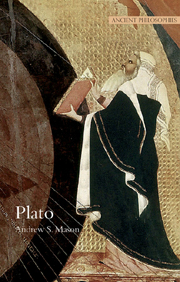Plato's works
Summary
This list includes all works that are generally agreed to be by Plato, and also some that, while disputed, are widely thought to be his. Dialogues whose authenticity is disputed are marked with an asterisk.
In line with the arguments of Chapter 2, Plato's works are here divided into three groups: Socratic dialogues, reflecting the thought of the historical Socrates; Platonic dialogues, reflecting Plato's thought during the period when he developed his most famous ideas; and later Platonic dialogues, reflecting Plato's thought in the last period of his life. The Socratic dialogues are often believed to have been written early in Plato's career, and to precede the Platonic dialogues, but this cannot be known with certainty.
Socratic dialogues
(In alphabetical order)
Alcibiades*
Apology
Charmides
Crito
Euthydemus
Euthyphro
Gorgias
Hippias Major*
Hippias Minor
Ion
Laches
Lysis
Meno
Protagoras
The Gorgias and Meno are often thought to have both Socratic and Platonic elements.
The Menexenus is also often grouped with the Socratic dialogues, though, being a satirical work, it does not directly reflect the thought of either Socrates or Plato.
Platonic dialogues
(In conjectural order of composition)
Cratylus
Phaedo
Symposium
Republic
Phaedrus
Parmenides
Theaetetus
The Parmenides and Theaetetus are widely thought to be the last of this group, and to have some features in common with the late group.
Later Platonic dialogues
(In conjectural order of composition)
Timaeus
Critias (incomplete)
Sophist
Statesman (also called Politicus)
Philebus
Laws
Epinomis*
The Seventh Letter, if genuine, also belongs to the last period of Plato's life.
- Type
- Chapter
- Information
- Plato , pp. 207 - 208Publisher: Acumen PublishingPrint publication year: 2010

